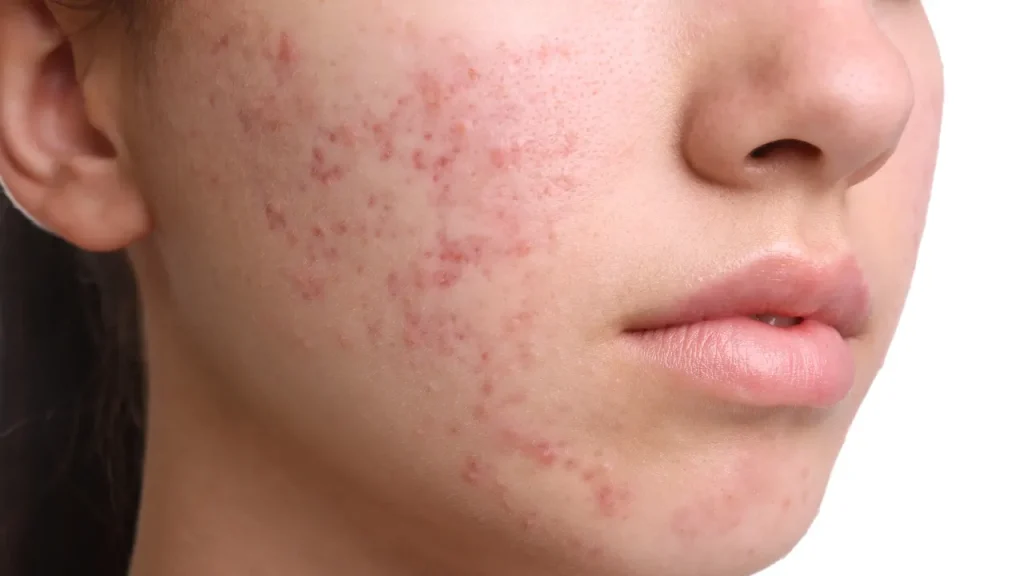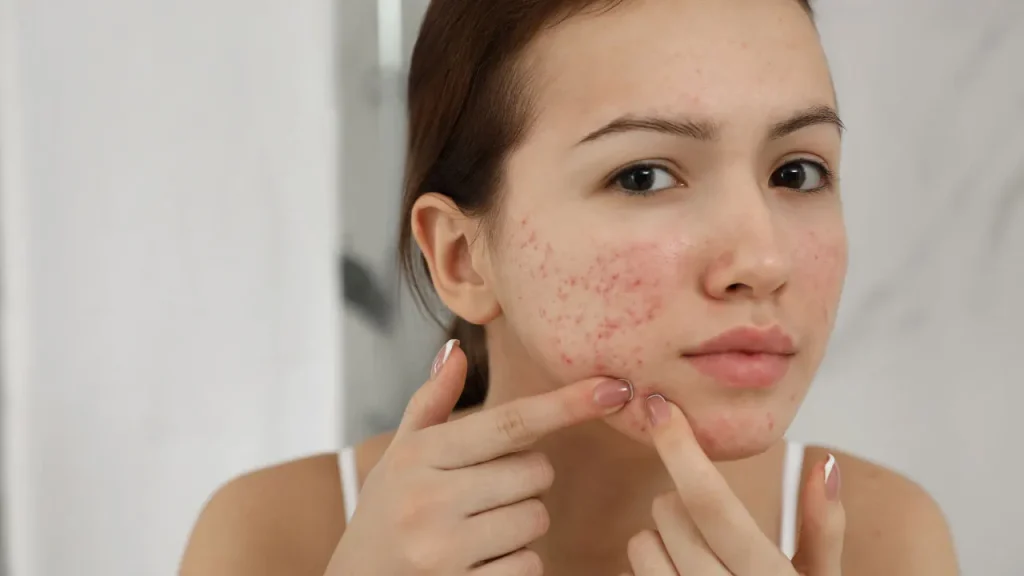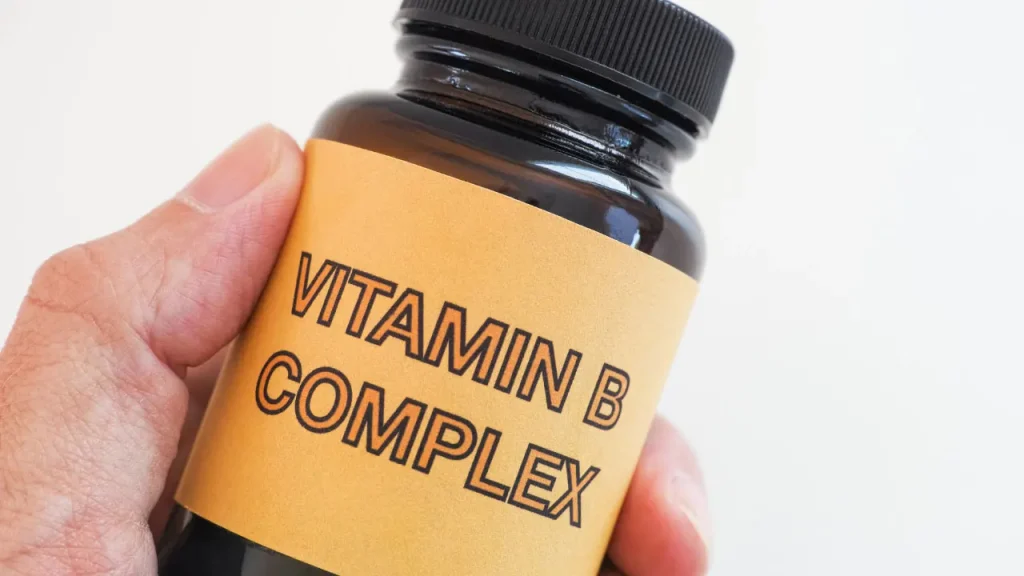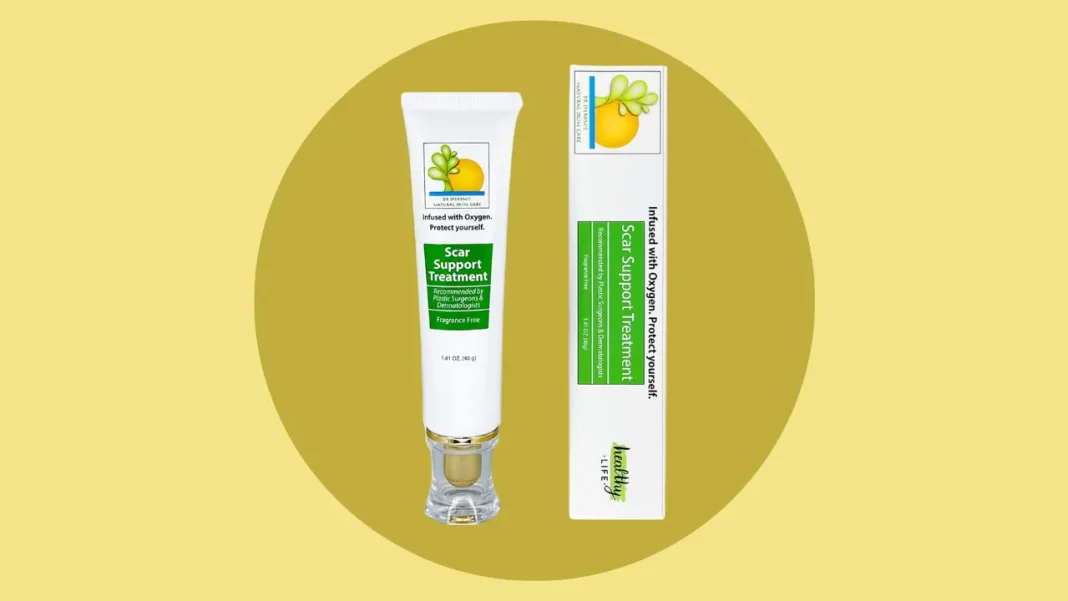Acne scarring can be as emotionally and socially debilitating as it is disfiguring.Thankfully, topical treatments can be applied to reduce the severity of scarring substantially. This article provides an in-depth review of the leading natural acne scar treatment brand. Dr. Speron’s Natural Skincare offers a safe, effective alternative to using harsh chemical agents or undergoing expensive and potentially invasive dermatological procedures, such as laser scar removal. The natural ingredients in Dr. Speron’s Acne Scar Treatment & Removal Cream are highly recommended by plastic surgeons and dermatologists for their safety and efficacy. Customers are giving the product rave reviews based on their outstanding results. Read on for an in-depth evaluation and review of Dr. Speron’s Natural Skincare Acne Scar Treatment & Removal Cream.
The American Academy of Dermatology recognizes acne as one of the most common skin conditions in the United States, affecting up to 50 million Americans annually. Acne typically begins in puberty and is associated mainly with adolescents and young adults; however, it can occur at any age, and cases of adult acne are rising.
The causes of acne are multifaceted, involving a combination of genetic, hormonal, environmental, and dietary factors. While the exact cause can vary from person to person, several well-established factors can contribute to the development of acne. These include:
- Excess Oil Production: The sebaceous glands overproduce oil, leading to clogged pores and acne.
- Clogged Hair Follicles: Hair follicles clogged with oil and dead skin cells can result in acne.
- Bacteria: Bacteria on the skin can exacerbate acne by causing inflammation and infection.
- Excess Activity of Androgens: Androgens are hormones that increase during puberty, leading to enlarged sebaceous glands and increased oil production.
- Medications: Certain medications, including corticosteroids, lithium, or testosterone, can lead to acne outbreaks.
- Diet: While the link between diet and acne is still under research, some studies suggest that consuming dairy products and carbohydrate-rich foods can trigger acne.
- Stress: Stress doesn’t necessarily cause acne but can exacerbate it.
These factors may cause various types of acne, including whiteheads, blackheads, pimples, cysts, and nodules. Proper skincare routines, medications, and lifestyle changes can help manage and mitigate acne outbreaks; unfortunately, severe cases can result in scarring. As we delve deeper into this topic, we will explore different methods of scar removal and the specific benefits of natural scar removal, introducing a product line that epitomizes the fusion of nature and science for optimal skincare, Dr. Speron’s Natural Skincare.
You May Also Like:
Reclaim Your Radiance: Unravel the Secrets of Glowing Skin Health
Soothe Inflammatory Skin Conditions with Krill Oil, the Powerful Skincare Remedy
Dr. Speron’s Natural Skincare Acne Scar Treatment & Removal Cream: In-Depth Review is an original (HerHealthWatch) article.
How acne scarring happens
Acne scarring is a common dermatological issue stemming from the aftermath of acne. These scars result from inflamed blemishes caused by skin pores engorged with excess oil, dead skin cells, and bacteria. The pore swells, causing a break in the follicle wall; these breaks cause infected material to spill out into surrounding tissue, creating deeper lesions. The body’s natural response is to repair these lesions by forming new collagen fibers, but this reparative process is not flawless. The resultant skin texture can either be undulating or pitted, leading to the physical manifestation of acne scars.
The emotional toll of acne scarring is significant. Many individuals grapple with declining self-esteem and confidence, questioning, “Do acne scars go away?” The permanence and visibility of these scars can lead to social withdrawal and mental health challenges.
Acne marks vs acne scars
Acne marks and scars are often confused but have distinct characteristics and implications. Shallow lesions create acne marks, are usually minor, heal quickly, and fade over time, while acne scars are often permanent. Acne scars manifest in various forms, each with distinct characteristics. Some common types of acne scars include:
- Ice Pick Scars – deep, narrow scars that penetrate the dermis. They appear as if the skin has been punctured with a sharp object, leaving small yet profound indentations.
- Boxcar Scars – characterized by angular edges and a depressed appearance, boxcar scars are often found on the temples and cheeks. They resemble chickenpox scars and can be shallow or deep.
- Rolling Acne Scars – these scars give the skin a wave-like, undulating appearance due to their broad depressions and sloping edges. They result from fibrous bands of tissue developing between the skin and the subcutaneous tissue, pulling the epidermis downward.
- Hypertrophic Scars – are raised scars that sit above the surface of the surrounding skin. They are often red or dark and result from an overproduction of collagen during healing.
- Keloid Scars – like hypertrophic scars, keloids are raised and dark but tend to extend beyond the initial injury site. They are more common in people with darker skin tones and can continue growing over time.
Scar removal treatments
Various treatments are available to address acne scarring, each with unique limitations and levels of effectiveness. Here we list seven of the more popular treatments and their potential side effects:
1. Steroid Injection: Involves injecting steroids directly into the scar tissue to help decrease its appearance and inflammation.
Potential Side Effects: skin discoloration, infection, and allergic reactions.
2. Laser therapy (resurfacing): Utilizes concentrated light beams to remove damaged skin layers and stimulate collagen production for skin regeneration.
Potential Side Effects: redness, swelling, infection, and changes in skin color.
3. Dermabrasion: Employs a specialized instrument to sand the outer layers of skin, promoting the growth of new, smoother skin.
Potential Side Effects: scarring, changes in skin pigmentation, infection, and allergic reactions.
4. Chemical peels: Application of a chemical solution to the affected area to exfoliate the top layers of skin and reveal a smoother surface underneath. Repeat peels are often needed.
Potential Side Effects: redness, scarring, infection, and changes in skin color.
5. Skin Microneedling: Utilizes fine needles to create controlled skin injuries, prompting the skin to produce more collagen to heal the wounds.
Potential Side Effects: infection, changes in skin color, and possible worsening of existing skin conditions.
6. Surgery – Punch Excision: The scarred skin area is removed, and the resulting wound is either stitched or filled with a skin graft.
Potential Side Effects: Infection, changes in skin color, and potential for additional scarring.
7. OnabotulinumtoxinA (Botox): Injections of Botox into the affected area to relax the surrounding muscles and improve the appearance of the skin’s surface. Injections are repeated every few months to maintain results.
Potential Side Effects: pain at the injection site, allergic reactions, and, in rare cases, muscle weakness or difficulty breathing.
Some of these methods can be costly and may not be covered by health insurance since insurance companies often classify them as cosmetic procedures.

Natural scar removal for acne scar home treatments
There has been a discernible shift towards natural scar removal and reduction methods in light of the limitations and risks associated with conventional treatments. Acne scar home treatments are convenient, so creams and gels have gained popularity for those seeking alternatives to invasive treatments. Natural acne scar treatment products are praised for their minimal side effects, affordability, and compatibility with various skin types. Natural ingredients like aloe vera, honey, hyaluronic acid, and essential oils have proven effective in reducing the appearance of scars and enhancing overall skin health.
The increasing popularity of natural treatments is anchored in their holistic approach to skincare. They aim to mitigate the physical appearance of scars while nourishing and rejuvenating the skin, promoting healing from within. Now, we’ll closely examine Dr. Speron’s Natural Skincare as a company and reveal how Dr. Speron has developed a genuinely innovative natural acne scar treatment.
Dr. Speron’s Natural Skincare – mission and vision
Based in Chicago, Dr. Speron’s Natural Skincare traces back to a profound commitment to delivering premium, effective, natural solutions for skincare challenges. Founded by Dr. Sam Speron, a board-certified plastic surgeon with over two decades of experience, the company embodies a synthesis of medical expertise and a passion for holistic wellness in the quest for the best natural skincare.
Dr. Speron’s mission is anchored in the belief that skincare should address the outward concern of appearance while fostering overall skin health and vitality. The company was birthed from his desire to create a skincare line for his patients to experience the benefits of treatments he provided in his clinic that they couldn’t experience anyplace else – treatments that include the use of all-natural ingredients, hyaluronic acid, vitamins, peptides, and oxygen therapy.
The company’s vision is encapsulated in its dedication to harnessing the potency of natural ingredients meticulously selected for their proven efficacy and safety. Every product is a testament to Dr. Speron’s unwavering commitment to quality, reflecting a synergy of scientific innovation and nature’s bounty for the best natural skincare.

Dr. Speron’s Natural Skincare – not just another acne scar removal cream
Dr. Speron’s Natural Skincare Acne Scar Treatment & Removal Cream is not a generic solution but a targeted treatment meticulously formulated to mitigate the appearance of acne scars and restore the skin’s natural texture and tone. The cream’s proprietary formulation includes six well-researched ingredients for scar reduction and removal: oxygen (as oxygenated purified water), silicone, probiotics, hyaluronic acid, peptides, and vitamins A through E. Each ingredient, backed by scientific evidence, targets scar tissue and promotes skin healing and rejuvenation:
1. Oxygen is fundamental to cellular metabolism and the skin’s healing process.
How it Works: Damaged tissue requires more energy to heal. Oxygen provides energy by enhancing cellular respiration, leading to rapid regeneration of damaged skin cells and tissues. This study discusses the dynamic role of oxygen in wound healing and how topical oxygen, among other oxygen therapies, can deliver oxygen directly to the area where it’s needed.
2. Silicone is a renowned ingredient for its efficacy in scar management; doctors began using silicone sheeting (SGS) in the early 1980s for scar therapy. Silicone gel products have demonstrated positive outcomes for scar treatment.
What it does: Researchers do not yet understand precisely how it works, but they agree that silicone hydrates the scar tissue, reducing collagen production and improving the scar’s appearance and texture. There are several studies supporting the use of silicone for scar treatment:
- A review article published in Dermatology Research and Practice states that silicone-based products are one of the most common and effective solutions for preventing and treating hypertrophic acne scars and keloids.
- Another review published in The Journal of Plastic, Reconstructive, and Aesthetic Surgery (JPRAS) concludes: “Silicone sheets and gels are recommended as the ‘gold standard, non-invasive therapies for both the prevention and the treatment of hypertrophic scars and keloids.”
3. Probiotics are beneficial bacteria that can promote skin health.
How they work: Probiotics balance the skin’s microbiome by disrupting the formation of “bad” bacteria, creating a protective shield for the skin, reducing inflammation, and accelerating the healing process. The following studies support using probiotics in wound healing and general skin health:
- This study, Acne vulgaris, probiotics, and the gut-brain-skin axis – back to the future? highlights the role of topical probiotics in promoting skin health and wound healing.
- Topical Probiotics in Dermatological Therapy and Skincare: A Concise Review devotes a section to discussing probiotics’ use in combatting acne.
4. Hyaluronic Acid (HA) is a naturally occurring substance known for its hydrating and healing properties. The skin contains 50% of HA in the human body.
How it Works: It hydrates the skin, promoting a plump, smooth appearance and accelerating wound healing. There are numerous studies on the use of HA for wound healing and scar reduction; here are two:
- This 2003 study reveals that HA can assist tissue regeneration and reduce scar formation in skin incisions.
- A 2016 review article concludes that hyaluronic acid speeds wound healing by controlling inflammation and redirecting blood vessels to damaged skin.
5. Copper Peptides are short chains of amino acids that play a role in skin texture and resilience.
How they work: Peptides stimulate collagen production, improving the skin’s elasticity and reducing the appearance of scars. This review article discusses how peptides are used in anti-aging products and includes a section on copper peptides’ role in wound healing and skin regeneration.
6. Vitamins A, B Complex, C, D, and E
Dr. Speron’s Natural Skincare Acne Scar Treatment & Removal Cream contains a potent mix of essential vitamins, enhancing the cream’s efficacy. These vitamins, each with unique properties, work synergistically to promote skin healing, reduce scar visibility, and improve overall skin health. The incorporation of these vitamins ensures that the skin is nourished and revitalized, aiding in the accelerated healing of acne scars:
- Vitamin A – Promotes cell turnover and regeneration, helping to replace damaged skin cells with healthy ones, which is crucial for reducing the appearance of scars.
- B Complex Vitamins – Known for their anti-inflammatory properties, they help to reduce redness and irritation associated with acne scars, promoting an even skin tone.
- Vitamin C – A powerful antioxidant that aids in synthesizing collagen and is essential for skin elasticity and regeneration. It also helps to fade hyperpigmentation associated with scarring. This article from Harvard Health discussed the skin benefits of topical vitamin C.
- Vitamin D: – Supports skin repair and renewal, enhancing the skin’s resilience and reducing the visibility of scars over time.
- Vitamin E – A renowned antioxidant, protects the skin from environmental damage caused by free radicals. It supports the skin’s natural barrier function, enhancing moisture retention and hydration.

The competition vs. Dr. Speron’s Natural Skincare
Many OTC (over-the-counter) products claim to offer effective solutions for acne scars. Below, we briefly explore four competitors to understand the landscape and underscore the unparalleled benefits of Dr. Speron’s formulation.
1. Skin Ceuticals Advanced Scar Control is a high-silicone scar gel (95% silicones, 0.5% allantoin, 2% fatty acids, and 1% ultralight silica).
2. Keeva Organics Acne Scar Removal Cream: uses natural ingredients, including hyaluronic acid, grape seed extract, and essential oils.
3. Post Acne Scar Gel (1oz) | Proactiv® Products: The primary active ingredient in this scar gel is bakuchiol, a plant-based retinol alternative and antioxidant known to help improve skin texture. While gentler than traditional retinoids, it may still cause irritation, and your skin may take time to get used to it.
4. InvisiScar Resurfacing Treatment – Scar Serum | Murad Skincare uses BHA (Beta Hydroxy Acid) to exfoliate and purify centella asiatica & vitamin C encourages a brighter complexion.
These products have made their mark, but they often fail to deliver the comprehensive scar healing and rejuvenation offered by Dr. Speron’s Natural Skincare Acne Scar Treatment & Removal Cream. While they contain some ingredients used in Dr. Speron’s product, none uses all six, and none uses oxygen or probiotics. More importantly, Dr. Speron owns his formulation and continues to modify it as new data emerges, making it one of the most innovative acne scar home treatments on the market.
Dr. Speron’s Natural Skincare – comes with customer care
In addition to providing one of the best natural skincare lines, Dr. Speron’s Natural Skincare prioritizes customers’ needs by doing more than just taking orders and selling products. Operating as an actual medical office enables them to offer free virtual consultations with licensed medical estheticians seven days a week; appointments can be easily made on their website. The company’s product support indicates its commitment to fostering enduring relationships with its clientele, characterized by trust and satisfaction, as proven by customer testimonials.
Dr. Speron works with customers to tailor their skincare regime. Whether you’re looking for the best treatment for rolling acne scars or want a product that works with your favorite makeup, he says, “We don’t pressure people – if they like their current product, we don’t try to talk them out of it unnecessarily but suggest incorporating one of ours into their skincare routine.” He adds, “ If you like something, submit it to us, and we will adjust formulations or clear up misinformation.”
Lastly, Dr. Speron doesn’t oversell his product or make claims he can’t support with science and results. When discussing his natural acne scar treatment, he reminds consumers, “It’s still a topical, not surgery! It penetrates more but, in the end, is still a topical and can only do so much.”
As an alternative to surgery, Dr. Speron has developed one of the best natural skincare lines available at a very affordable price. When it comes to natural acne scar treatment, he says he wants to be known as “the scar doctor.”
Choose the natural acne scar treatment that works
The silent question, “Do acne scars go away?” echoes in those still living with the aftermath of acne. In this space of vulnerability and quest for renewal, Dr. Speron’s Natural Skincare Acne Scar Treatment & Removal Cream emerges as a non-surgical solution that can help alleviate acne scarring.
Unlike any other, this cream is infused with oxygen, silicone, probiotics, hyaluronic acid, peptides, and a rich blend of vitamins A through E. Each application promises not just scar reduction but a holistic nourishment that breathes vitality into every layer of your skin.
In a market saturated with acne scar removal products, Dr. Speron’s creation distinguishes itself for the meticulous blend of ingredients and the science, innovation, and medical expertise underpinning its formulation. Where others offer temporary or surface-level reprieve, Dr. Speron’s cream is a deep dive into cellular regeneration and comprehensive skin wellness. It’s not just about looking good; it’s about reviving your skin’s intrinsic health and vibrancy.
Dr. Speron’s Natural Skincare Acne Scar Treatment & Removal Cream is available for purchase directly from their website and on Amazon.
If you’ve struggled with acne and don’t want those pesky little reminders sticking around on your skin, requiring thick foundations to camouflage them that may further exacerbate your acne, it may be time to try Dr. Speron’s Natural Skincare Acne Scar Treatment & Removal Cream.

For further reading:
VeryWell Health – Ice Pick Scars: How They Form & How to Treat Them.
Medical News Today – Silicone for skin: Uses, benefits, risks, and more
AAD – Acne scars: Diagnosis and treatment
PMC – Potential applications of topical oxygen therapy in dermatology
Important Note: The information contained in this article is for general informational purposes only, and should not be construed as health or medical advice, nor is it intended to diagnose, prevent, treat, or cure any disease or health condition. Before embarking on any diet, fitness regimen, or program of nutritional supplementation, it is advisable to consult your healthcare professional in order to determine its safety and probable efficacy in terms of your individual state of health.
Regarding Nutritional Supplements Or Other Non-Prescription Health Products: If any nutritional supplements or other non-prescription health products are mentioned in the foregoing article, any claims or statements made about them have not been evaluated by the U.S. Food and Drug Administration, and such nutritional supplements or other health products are not intended to diagnose, treat, cure, or prevent any disease.


